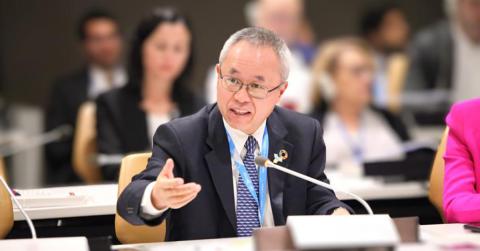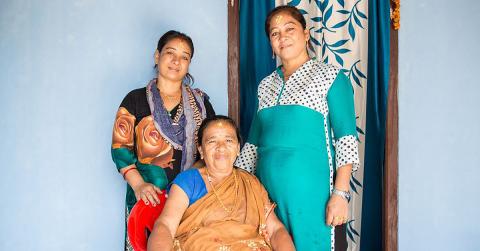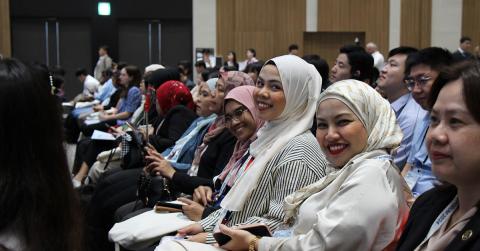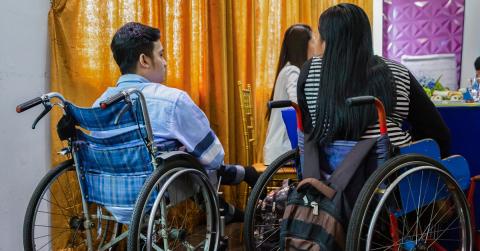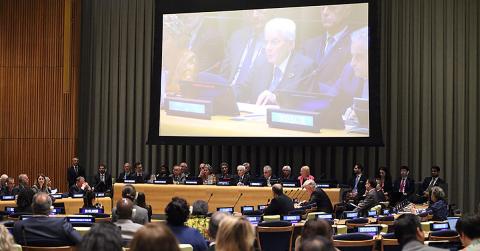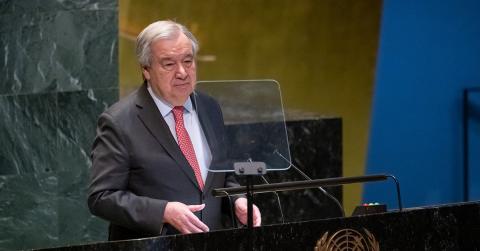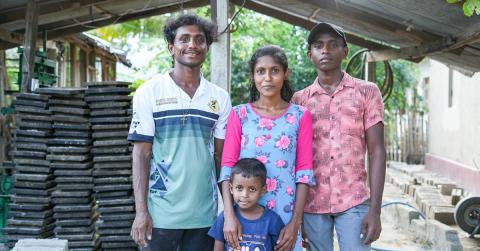UN DESA Under-Secretary-General Li Junhua joins online community on LinkedIn
“At the United Nations, we represent diverse voices connected by a shared purpose: building a more inclusive, equitable and sustainable world. I’m glad to join LinkedIn as part of this community and look forward to the rich and scholarly discussions around the most pressing global issues of our time,” said UN DESA’s Under-Secretary-General Li Junhua as he joined the platform on 28 May 2025.
ECOSOC events to look out for in June 2025
In June, the Economic and Social Council (ECOSOC) will convene a series of key meetings focused on humanitarian, development, and peacebuilding:
Reliable data on international migration matter more than ever
Reliable data on international migrants and migration are crucial for assessing current and future trends, identifying policy priorities, making informed decisions, promoting evidence-based discourse and dispelling misleading and harmful narratives. Yet there is often a lack of clarity about what international migration is, who should be considered an international migrant for statistical purposes, and how migration should be measured. Even when there is agreement on these specific technical issues, data on international migration and migrants are often incomplete or out of date.
Accelerating public service delivery for a sustainable future
With just five years left to achieve the 2030 Agenda for Sustainable Development and its 17 Sustainable Development Goals (SDGs), the urgency to accelerate action has never been greater. Governments around the world are grappling with interconnected challenges including high and rising inequality, climate change, public health crises, economic instability, and declining trust in institutions.
COSP18: Spotlight on disability rights ahead of Second World Summit for Social Development
Persons with disabilities continue to face persistent barriers in daily life - limited access to education and employment, discrimination, and exclusion from decision-making. While progress has been made since the adoption of the Convention on the Rights of Persons with Disabilities (CRPD), the pace of change remains far too slow.
Advancing peace, justice and strengthening institutions to accelerate progress on the 2030 Agenda
Multiple, interconnected crises—including rising inequalities, poverty, hunger, climate change, and conflicts—continue to hinder progress toward the 2030 Agenda for Sustainable Development.
Sixth global conference to promote synergies between climate and the SDGs
How can governments and other key players urgently act on the climate crisis in a way that maximizes sustainable development and the achievement of the SDGs?
Government officials and experts from civil society, the private sector and academia will come together in Copenhagen, Denmark on 27-28 May 2025 to tackle this and related questions at the 6th Global Conference on Climate and SDG Synergies, co-convened by UN DESA and UN Climate Change (UNFCCC), hosted by the Ministry of Foreign Affairs of Denmark.
Empowering NGOs: Your path to UN engagement
As the world continues to navigate complex global challenges—ranging from climate change and economic instability to humanitarian crises and persistent inequality—civil society organizations play a critical role in bridging the gap between governments and communities. They address pressing issues that governments alone cannot fully resolve.
UN High-level Advisory Board gears up for Bangkok meeting
A new group of distinguished members of the United Nations High-level Advisory Board on Economic and Social Affairs (HLAB) is preparing to embark on the third term of the Board, with a two-day meeting in Bangkok, Thailand.
Convened by Li Junhua, the UN Under-Secretary-General for Economic and Social Affairs, the Board brings together a dynamic group of prominent academics and thought leaders from around the world.
Family-oriented policies for a more inclusive future
On 15 May 2025, the United Nations will commemorate the International Day of Families under the theme “Family-Oriented Policies for Sustainable Development: Towards the Second World Summit for Social Development”. Held at UN Headquarters in New York, this year’s observance highlights the vital role of families and family policy in building more inclusive, resilient and sustainable societies.
 Welcome to the United Nations
Welcome to the United Nations
